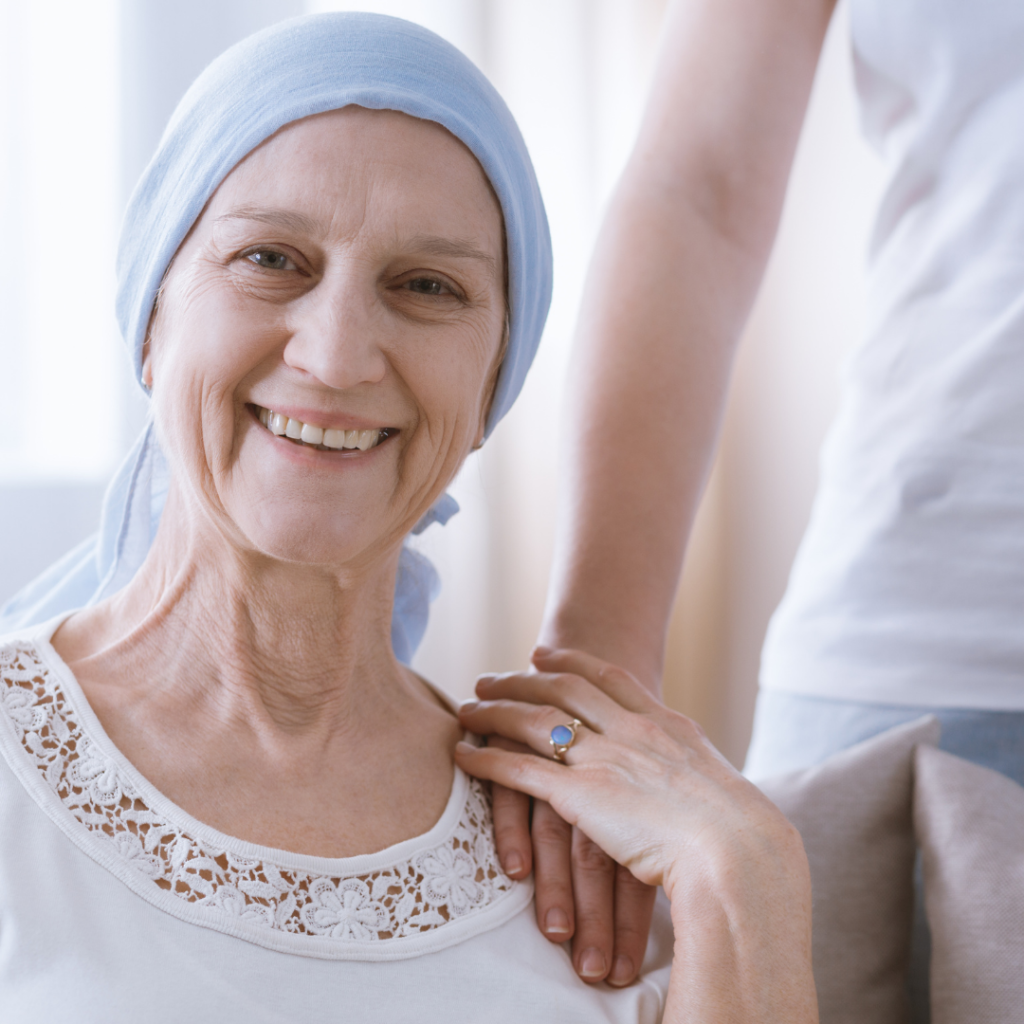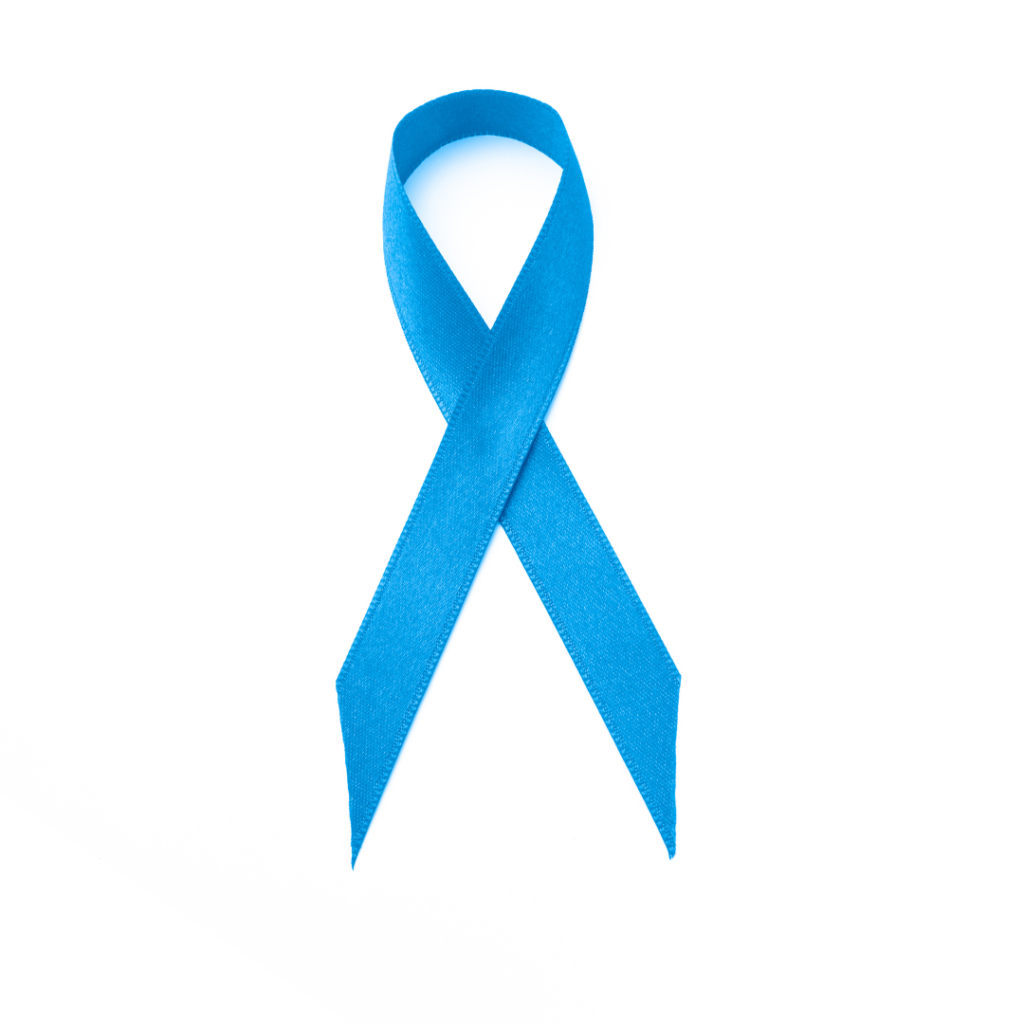October 19, 2020
Exercising with cancer, should you? Should you not? What have you heard? It was previously thought, those who have been diagnosed with cancer should avoid all forms of activity. We’re here to tell you how things have changed!

The C-Word within the Aging Community
We’ve all heard a number of stories. The grandfather who fought beyond what the doctors had predicted. The father, who was in complete control of his health until one day he heard an unexpected diagnosis. The mother who wanted nothing but the best for her family in her remaining time. The child, remaining optimistic, despite the unfortunate circumstance.
In one form or another cancer is a part of many families. In fact, I never met my paternal grandmother because she passed before my father’s 18th birthday. Fast forward, my grandfather who had already lost his first wife to cancer, lost yet another to this horrendous illness. More recently, my maternal grandfather, whom I will say fought like an absolute champion lost his battle with this disease. Everyone has a connection with cancer in one way or another. It has become a mystery for oncologists, researchers, physicians, scientists, and so many families.
What Do We Know About Cancer?
In it’s most basic form cancer is a disease that divides (abnormally) and at an alarming, uncontrolled rate. Ultimately infecting and destroying body tissue. Cancer comes in many different shapes, sizes, severity and forms. Of the most common types include Breast, Prostate, Basal cell, Melanoma, Colon, Lung, Leukemia, and Lymphoma. Cancer occurs in four stages, the first being the initial onset, which may actually go undetected. Each stage progressively worsening until stage four in which the cancer is said to have metastasized. Cancers that have spread, i.e. stage four, are difficult to treat and unlikely to be cured in the long term.
Unfortunately, cancer is a very abnormal disease. It attacks individuals in many different ways, which is why it has been a challenge for experts to find an effective cure.
We also know cancer affects the body in a number of different ways. Those with cancer often experience fatigue, accelerated functional decline, pain, psychological distress and they are at a higher risk for developing comorbid conditions such as cardiovascular disease, diabetes, osteoporosis and sarcopenia. Cancer related fatigue (CRF) is also commonly reported among cancer survivors. This concept goes beyond simply physical as it also relates to social, psychological, and biological components. CRF is occurs in up to 90% of patients during treatment by radiation, chemotherapy or endocrine therapies.
Those with cancer often do not meet exercise recommendations. Anywhere from 50-70% of people with cancer do not meet the weekly recommendations of at least 150 minutes of moderately intense aerobic activity. An even greater percentage do not meet weekly recommendations, as the recommendations also include muscle strengthening activity twice per week.

Why Should Someone Exercise when Battling or Having Battled Cancer?
In years past, clinicians advised patients to rest, and avoid any physical activity. However, beginning in the 1990s and early 2000s, researchers began challenging this advice. Evidence now shows exercise is beneficial before, during and after cancer treatment across all cancer types.
Therapeutic exercises are beneficial to manage treatment side effects, may enhance tolerance to cancer treatments, and improve functional outcomes. However, moderate to vigorous exercise is the best form of exercise to improve physical functioning and mitigate cancer related impairments.
Expected benefits for cancer patients from exercise:
- Reduce anxiety
- Decreased depressive symptoms
- Less fatigue
- Improved quality of life
- Improved perceived physical function
- Decreased / no risk of exacerbating lymphedema
Researchers found that individuals experience an increased level of motivation and described exercise as ‘especially rewarding’. In many cases, cancer patients feel their physical fitness has been impaired. With recovery through exercise, patients feel the enhanced performance improvement leading to improved outcomes during and following treatment.
The Studies Show Exercise is Beneficial
What do the studies show?
- Decreased risk of cancer related mortality: a recent review of 26 various studies reported that cancer survivors who exercised reduced their risk of dying from cancer by 37% compared to those who exercised the least.
- Decreased cancer related fatigue: training programs that last 12 weeks in duration, with moderate intensity levels, three times weekly, showed a reduction in cancer related fatigue during and after treatment. The effect is strongest with moderate-to-vigorous exercises versus low-intensity training.
- Improved sleep: there is mounting evidence showing implementing exercise into a cancer related care plan improves sleep dysfunction, fatigue, and depression.
- Based on the evidence provided in various studies, researchers recommend cancer survivors combine both aerobic and resistance training exercise. Patients should aim to receive 150 minutes of aerobic activity along with 2-3 days of muscle strengthening activity each week.
The Worry
Fortunately, we are provided with a great deal of evidence and perspective on the role exercise plays. With that being said, there is still a great deal of pushback when implementing such program.
As mentioned above, we’ve all had our run in with cancer, whether it be personal, family or friend. We have seen the havoc it wreaks on the human body. Now we know physicians, oncologists, and researchers were not pushing for exercise in the early studies. We were previously in a period of disarray. However, with the uncertainty surrounding cancer, we know one thing to be true, exercise is an extremely beneficial form of treatment. Those living with and those who have beaten cancer fought to survive. It is a tall order for someone to now add exercise into the care plan. Just know, exercise has and will continue to be recommended. It is one of the most effective and beneficial forms of treatment without any harmful side effects.